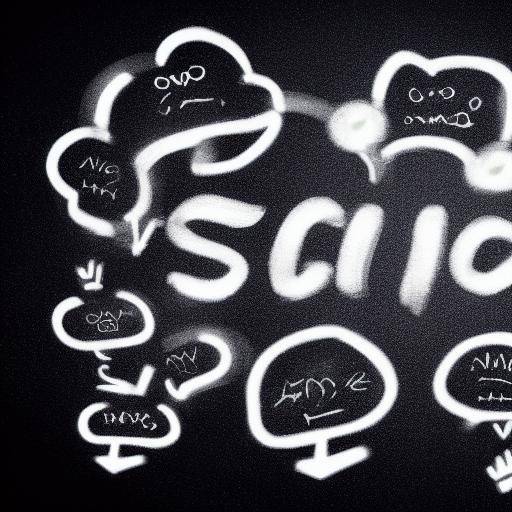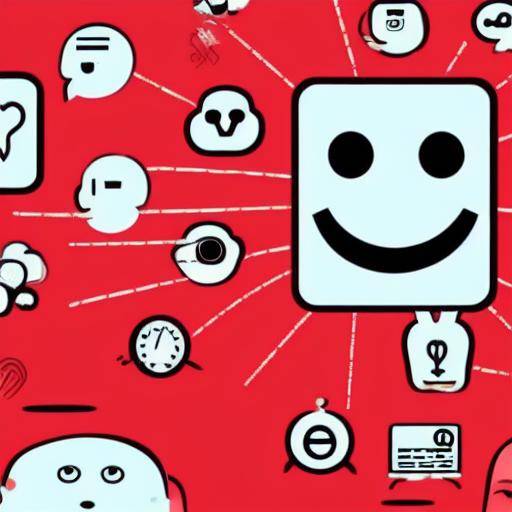
Emotional communication and emotional intelligence are key personal and professional skills. In this article, we will explore in depth the development of these interpersonal skills, their benefits and challenges, as well as their application in different contexts. From its historical evolution to future trends, we will offer a complete vision of how to develop emotionally intelligent communication skills.
Introduction
Emotional communication implies the ability to express and understand emotions effectively, while emotional intelligence encompasses the ability to understand and manage one's own emotions and those of others. These interpersonal skills are essential for building solid relationships and leading with empathy in personal and professional environments.
History and Background
Emotional communication and emotional intelligence have their roots in the psychological and sociological research of the twentieth century. From the pioneer studies of psychologists like Daniel Goleman to the evolution of theories on effective communication, these skills have been gaining importance over time.
Origins
The modern concept of emotional intelligence arises in the 1990s, with the work of Goleman and other researchers, who proposed the idea that emotional skills are equally important, if not more, than the intellectual coefficient in personal and professional success.
Significant Milestones and Developments
Since then, emotional intelligence has been the subject of numerous studies and has shown a significant impact on work performance, stress management, decision-making and interpersonal relationships.
Analysis in Deep
Emotional communication skills and emotional intelligence offer significant benefits in various aspects of life, from improving productivity at work to fostering stronger interpersonal relationships. However, they also pose challenges in their effective development and implementation.
Benefits
People with emotionally intelligent communication skills tend to be better leaders, collaborators and troubleshooters. Their ability to understand and manage emotions allows them to adapt effectively to different situations and to connect more genuinely with others.
Challenges
The development of emotional communication and emotional intelligence skills may require constant effort and practice, as well as overcoming emotional and mental obstacles. In addition, their effective implementation in working environments can be found with resistance or lack of understanding.
Comprehensive review
To develop emotionally intelligent communication skills, it is crucial to understand their practical application in different contexts, as well as to identify best practices and approaches.
Practical Applications
Emotional communication skills are fundamental in fields such as psychology, business management, leadership, education and social work. Its effective implementation can be the key to building strong teams, fostering collaboration and resolving conflicts constructively.
Best Practices
Empathy, active listening, conflict management and emotional self-management are some of the key skills to be developed. The practice of authenticity and understanding of the underlying emotional dynamics are also fundamental to improving interpersonal communication.
Comparative analysis
Emotional communication and emotional intelligence are closely related, but they differ in their approach. While the first focuses on the expression and understanding of emotions, the second focuses on managing one's own emotions and empathy towards others.
Practical Tips and Recommendations
Developing emotionally intelligent communication skills requires ongoing commitment and effort. Here are some practical tips for promoting growth in this regard:
- Practice active listening to understand the emotions of others.
- Develop the ability to express your own emotions clearly and constructively.
- Find feedback and learn from personal interactions.
Perceptions of Industry and Expert Reviews
Professionals and experts in psychology, leadership and personal development offer valuable insights on the impact of emotional communication and emotional intelligence in various environments. Your opinions and recommendations can illuminate the way for those who seek to improve these skills.
Case Studies and Practical Applications
Various case studies show how effective emotional communication and emotional intelligence have transformed organizations, teams and interpersonal relationships. These practical applications exemplify the tangiblely positive impact these skills can have in different environments.
Future Trends and Predictions
As awareness of the importance of emotional intelligence and emotional communication continues to grow, trends and predictions suggest a greater focus on the development of these skills. Their role in improving individual and collective well-being could make their development an even greater priority in the future.
Conclusions
The development of emotionally intelligent communication skills is fundamental to personal and professional growth. In understanding historical evolution, benefits and challenges, as well as their practical application, it is possible to strengthen these skills and improve the quality of human interactions.
Frequently asked questions
What is the difference between emotional communication and emotional intelligence?
Emotional communication refers to the ability to express and understand emotions, both own and external, effectively. On the other hand, emotional intelligence encompasses the ability to understand and manage one's own emotions, as well as to perceive and manage the emotions of others.
Why is it important to develop emotionally intelligent communication skills?
Developing these skills can improve interpersonal relationships, strengthen leadership, increase productivity and contribute to emotional well-being both in the personal and professional spheres.
How can I improve my emotional intelligence?
The development of emotional intelligence involves practicing self-consciousness, emotional self-management, empathy and social skills. Find feedback, practice active listening and reflect on your own emotions are key steps for your improvement.
What are some practical exercises to encourage effective emotional communication?
The practice of active listening, clear expression of emotions and the search for points in common with others are effective exercises to improve emotional communication. Regular practice of these skills in different situations can contribute to their development.
Does emotional communication have an impact on the working environment?
Yes, effective emotional communication can improve collaboration, conflict resolution and team cohesion in the working environment. It also contributes to a more positive organizational climate and stronger labour relations.
How can I encourage emotional intelligence in my working environment?
As a leader, you can foster emotional intelligence in the working environment by promoting self-consciousness, empathy and effective communication skills among team members. Stimulating emotional development and providing support in emotionally challenging situations can also be beneficial.
In short, the development of emotionally intelligent communication skills is a continuous process of personal and professional growth. In understanding its importance, benefiting from the experiences and perspectives of experts and applying practical advice, we can strengthen these skills and improve our quality of life and interpersonal relationships.




































